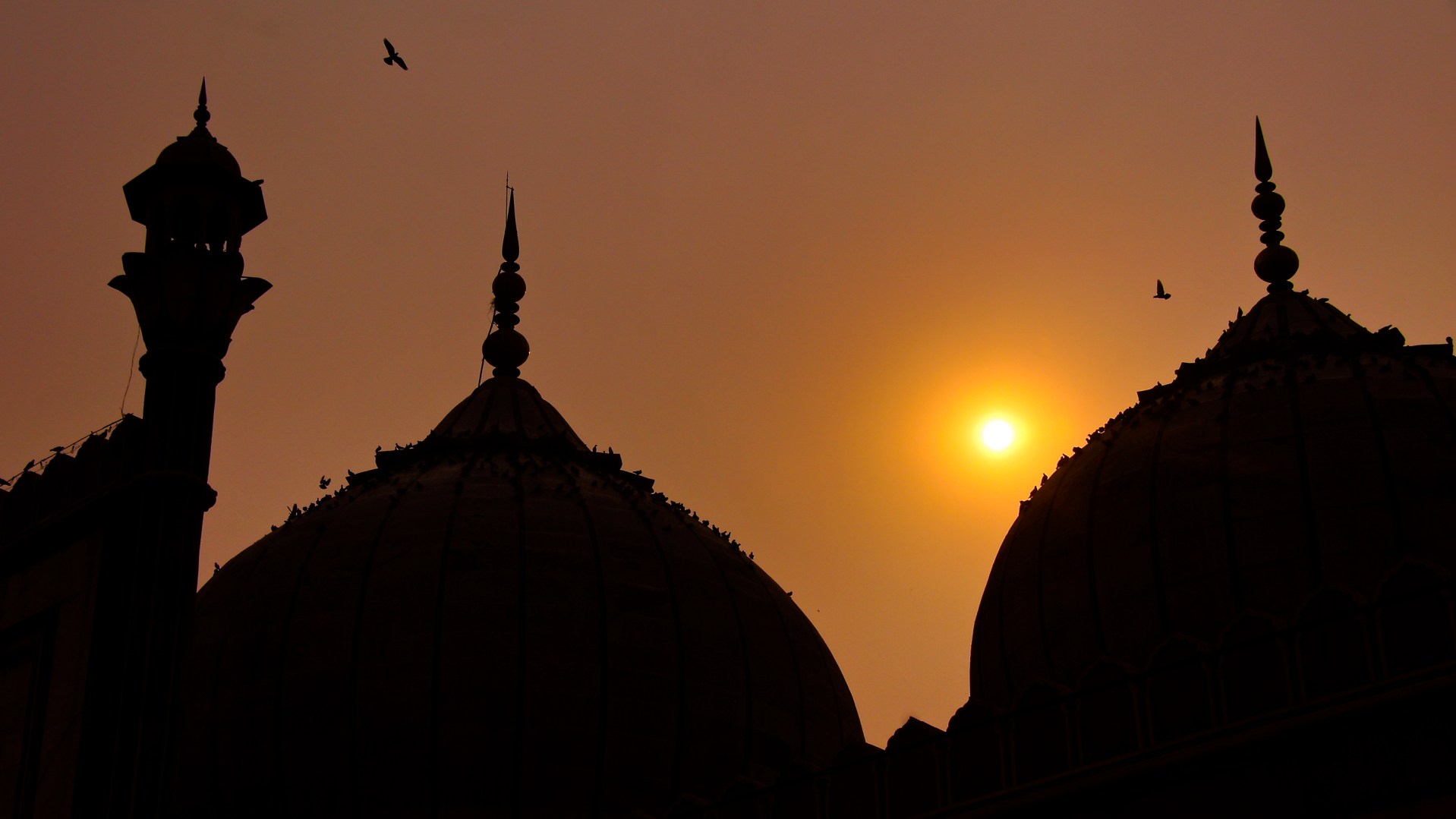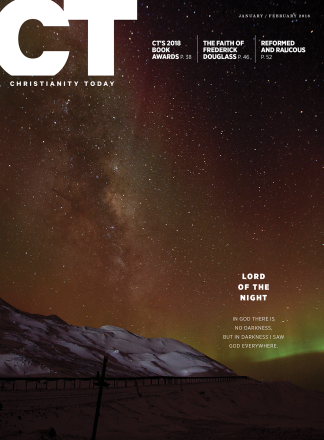What’s the best way for Middle Eastern Christians in America to help fellow believers back home? A single misspelled email address inadvertently revealed the breadth of this dilemma for activists in the diaspora.
The mishap sparked a spat this summer between two prominent US Arab groups: the Arab American Institute (AAI), a polling and policy organization led by James Zogby, and Coptic Solidarity (CS), which champions the religious freedom of Egyptian Christians and other minorities.
Zogby, who has a Lebanese Maronite background, was a scheduled participant in CS’s annual Washington conference, which leaders often use to advise DC’s foreign policy establishment on Middle East issues.
But two days before the June 15 conference, Zogby unexpectedly withdrew.
Zogby explained in an article weeks later that he withdrew after receiving word that some controversial anti-Muslim “hate groups” would be at the conference and that the title of a panel in which he was participating had been revised to suggest that violence and impunity are endemic in Muslim and Egyptian culture.
“The best way to reinforce the message of the haters of Christians in Egypt is by giving them the ammunition that Copts in the US are working with Islamophobes in Washington,” Zogby told CT. “I felt it important to call out CS for what I strongly believe is a wrong-headed and potentially dangerous path.”
Stunned by Zogby’s withdrawal and his public criticism, CS wrote an angry response, accusing Zogby of a “dhimmi mentality,” a reference to the secondary status of non-Muslims in the historic caliphate.
“He intentionally tried to hijack our event and tarnish our reputation,” Lindsay Griffin, CS’s director of advocacy and development, told CT.
According to organizers, participants had received the revised speaker list and panel names a full month before the conference. But Zogby didn’t. His email address was misspelled, so he never received a May 9 message outlining the changes that later led him to withdraw.
But while the spark that ignited the conflict between the groups was an honest mistake, the issues at the center of the dilemma are real.
“We reject the latent assumption that confronting such critical issues means attacking Islam and Muslims,” Griffin said. The conference had Muslim participants, including a keynote speaker.
But participants also included Frank Gaffney of the Center for Security Policy and Ryan Mauro of the Clarion Institute, both identified by the controversial Southern Poverty Law Center as “anti-Muslim hate groups.” CS said it welcomes many voices in order to produce the best recommendations for US foreign policy.
In its rebuttal, CS described Zogby’s approach as “one that calls on Christian minorities and their representatives never to protest their persecution, and especially never to criticize Arab or Muslim cultures and societies, but to acquiesce and make do as best they can.”
The tension underlying the dueling accusations was palpable, but also of substance. Do Middle Eastern Christians suffer from something intrinsic to Islam? Should the US government be pushed to intervene accordingly? Or is it best to work charitably with regional governments to incrementally extend fuller religious freedoms and individual rights?
“There is a clear cultural and religious struggle here,” said Lilian Samaan, the American Bible Society’s strategic ministries advisor for the Middle East and North Africa. Originally from Jordan, she urges US Christians to support and learn from the Arab immigrant church in America.
CS has found space to talk freely in the US, she said, noting “neighbor-trust” has eroded significantly in the Middle East. But her own experience with many “beautiful, loyal” Muslims in Jordan prompted a somber observation once she began living in the diaspora herself.
“The majority of Christians in the Middle East associate themselves with the more conservative Christian movement in the US,” she said, “which in some instances, unfortunately, expresses its views on Muslims by generalizing, and associating moderate Muslims with Islamic terrorists.”
Samaan believes advocates need to employ both cooperation with and criticism of Middle Eastern governments. But she believes local Christians also need pressure to come from the American government.
Nabeel Jabbour, a Lebanese Christian who lived in Egypt for 15 years, disagrees. “The CS approach is counterproductive in the long run, and it will hurt the expansion of the gospel among Muslims,” he said. “Christian minorities in the Middle East will not be protected by America or the West, which are motivated by national interests.”
Jabbour teaches at Columbia International University and Denver Seminary and promotes a “kingdom” rather than a “Christendom” model for the Arab world. “CS is driven by the protection and the preservation of Christians in the Middle East, and especially in Egypt,” he said. “Zogby’s worldview is better, where the survival of Christianity is dependent on how well they learn to live with Muslims. Who will protect you when you are in danger?”
No one, says Peter BetBasoo, founder and editor of the Assyrian International News Agency, which has covered the historic Christian communities of Iraq since 1995. “Change will never come from working with Middle Eastern governments,” he said. “The pressure must come from an external agency, but then Christians will be seen as [a foreign threat].”
Seeking equality in civil rights and nondiscrimination is a struggle, BetBasoo said. But he doesn’t see governments as the biggest barrier. “It is the mob pressure of Muslims—it is Islam,” he said. “It is hard to argue with a Muslim if he believes his religion is directly the word of Allah.”
His major concern: the erasing of ancient Christian ethnicities under the banner of Arabism. He finds Zogby to be a principal culprit, lumping Assyrians, Copts, and Maronites into AAI. “The culturally imposed identity of ‘Arab’ must be removed,” BetBasoo said. “It is an injustice which continues to fester.”
This debate is crucial, especially as the US considers creating a “Middle East and North Africa” category for the upcoming 2020 census (a move Zogby supports). But some see the back-and-forth over the Arab label as a distraction.
“Calling the attention of the world to the suffering of many Eastern Christians is too important an issue to be wrapped up in domestic American politics and the volatile issues of identity politics,” said Maged Atiya, an Egyptian-American physician, businessman, and blogger. “Unity, rather than division, is the key to effective activism.”
Michael Sorial, author of Incarnational Exodus: A Vision for the Coptic Orthodox Church in North America, believes the methodologies of CS and AAI can work together. “One tends to be more disruptive in nature; the other appears more incremental,” he said. “But each group is speaking to a different part of the audience, seeking to educate them on the dire situation facing Christians in the Middle East.
“Ultimately,” said the New Jersey priest, “the dialogue that is happening between the two approaches is creating net positive attention to the issue.”
And this attention, Samaan hopes, will remind both American and diaspora churches of their crucial role—one she learned only gradually among the Muslims of Jordan.
“We Christians can be salt and light to those whose souls belong in eternity with the rest of us,” she said. “There will always be limitations and pressures from governments and other groups. But in the long run, persistence in advocacy will be life-changing for Christians in the region—one step at a time.”
Jayson Casper is a Cairo-based correspondent for Christianity Today.










